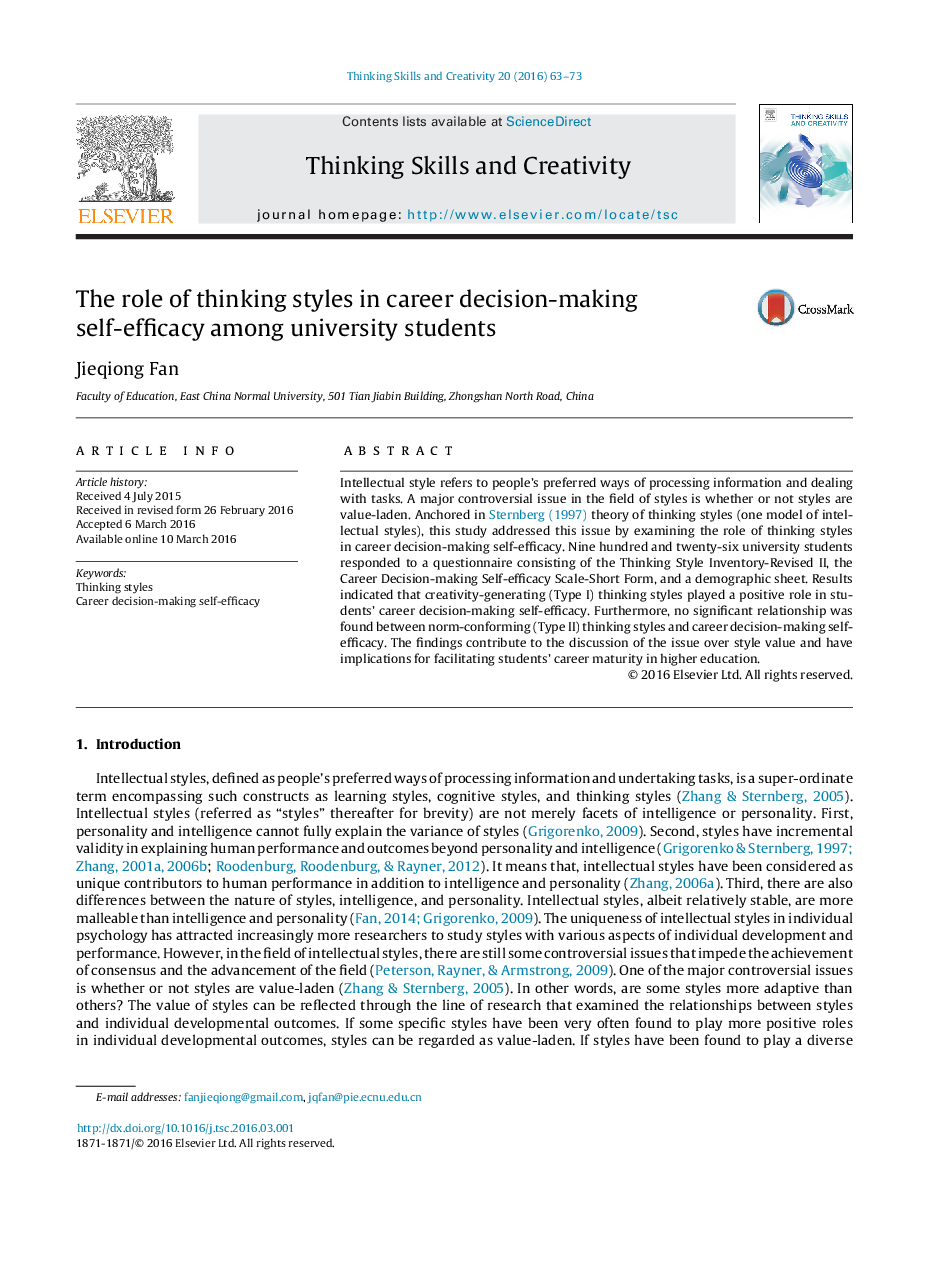| کد مقاله | کد نشریه | سال انتشار | مقاله انگلیسی | نسخه تمام متن |
|---|---|---|---|---|
| 375527 | 622801 | 2016 | 11 صفحه PDF | دانلود رایگان |
• Type I thinking styles were positively related to career decision-making self-efficacy.
• Type I thinking styles are value-laden.
• The threefold model of styles is supported.
Intellectual style refers to people’s preferred ways of processing information and dealing with tasks. A major controversial issue in the field of styles is whether or not styles are value-laden. Anchored in Sternberg (1997) theory of thinking styles (one model of intellectual styles), this study addressed this issue by examining the role of thinking styles in career decision-making self-efficacy. Nine hundred and twenty-six university students responded to a questionnaire consisting of the Thinking Style Inventory-Revised II, the Career Decision-making Self-efficacy Scale-Short Form, and a demographic sheet. Results indicated that creativity-generating (Type I) thinking styles played a positive role in students’ career decision-making self-efficacy. Furthermore, no significant relationship was found between norm-conforming (Type II) thinking styles and career decision-making self-efficacy. The findings contribute to the discussion of the issue over style value and have implications for facilitating students’ career maturity in higher education.
Journal: Thinking Skills and Creativity - Volume 20, June 2016, Pages 63–73
